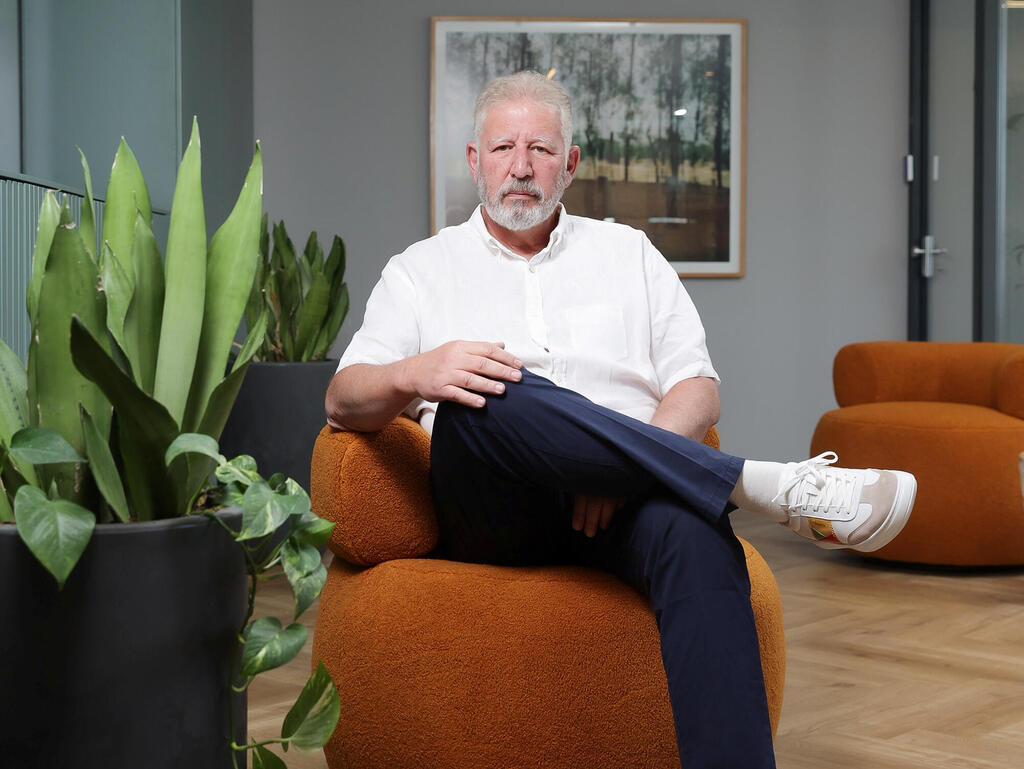
Gilad Altshuler: Nasdaq will keep climbing as new technologies emerge
The Israeli investment giant remains bullish on AI, cloud computing, and quantum tech.
"It is true that the Israeli stock market has recently delivered high returns, but if you look at the past 15 years and examine the performance of the Nasdaq and S&P 500 indices over time—rather than measuring results month by month—you see that they are the true market leaders. Ultimately, the leading indices are in New York, which is why we focus on equity investments abroad. This is not a reflection of whether the Israeli economy is strong or weak. The Israeli economy is strong, but the global capital markets are driven primarily by the technology sector, and most of the world's leading companies in this sector are concentrated in the major American indices," said Gilad Altshuler, founder and co-CEO of the Altshuler Shaham Investment House, in an interview with Calcalist.
Altshuler is one of the most vocal supporters among Israeli institutional investors of increasing exposure to international markets, even though his investment firm holds significant stakes in many Israeli companies.
Over the past 12 months, the TA-125 index—the Tel Aviv Stock Exchange’s benchmark—has risen by 30%, while the Nasdaq has gained "only" 22% in the same period. However, over the last five years, the American technology index has surged by more than 100%, whereas the TA-125 has risen by just 53%.
"In the last 8–9 years, people have repeatedly suggested that the Nasdaq has peaked, or even hit a ceiling, yet we see what actually happened—the world keeps innovating," Altshuler said. "Sometimes it's cloud computing, sometimes artificial intelligence, and now quantum computing. There is always technological development that we didn't anticipate, and these advancements push the market higher. I believe more breakthroughs will emerge in the future—things we can't even imagine today."
The local market and geopolitical risks
How do you view the local market? It, too, has experienced a strong rally in the past year, but geopolitical risks remain a factor.
"The key issue in Israel right now is interest rates, which are ultimately trending downward. When they drop, they will push everything else up. Obviously, the geopolitical and security situation also has a major impact, but that has always been the case here. Even on October 6, the day before the war began, geopolitical risks existed—unfortunately, they materialized. The market has lived with this uncertainty for years. After the sharp declines at the start of the war, the market rebounded. In the end, there was no dramatic market reaction, despite the severity of the event itself."
Related articles:
- KSP’s founders exit with $195 million as institutional investors take a bigger stake
- From importing computer parts to a $160 million exit: KSP’s founders cash in on retail empire
- “In the past you had to be public to be a large company, but that's no longer the case. There are enormous private companies”
Real estate challenges in Israel
The war that broke out on October 7 also shook Israel’s residential construction sector. The industry, which relied heavily on Palestinian labor, suddenly faced a severe worker shortage when their entry into Israel was banned. Meanwhile, high interest rates—currently at 4.5%—have increased the burden of mortgage payments on homebuyers. In response, many contractors and developers have launched financing campaigns such as the 20-80 model, where buyers pay 20% upfront and the remaining 80% upon occupancy. In some cases, the developer even subsidizes the financing.
This method, known as a balloon loan, allows homebuyers to defer payments until construction is complete, with the developer covering the interest in the interim. As of last January, balloon loans accounted for 15.5% of all new mortgages—lower than April's peak but still historically high.
Altshuler warns that this system "mainly poses a risk to customers rather than contractors, as developers receive a partial payment upfront, and those who fail to pay the balance ultimately lose their initial investment."
Regarding the office sector, where income-generating real estate companies operate, Altshuler notes that "this sector has been struggling for a long time." Large real estate firms have acknowledged in recent investor meetings that leasing office space outside of high-demand areas in central Israel has become increasingly difficult.
The rise of institutional investors
Israeli institutional investors have become dominant players in the economy, rivaling even the banks. However, insurance companies still have significantly lower market valuations and profits compared to banks. Could they close the gap?
"Insurance companies have room to grow in various areas, such as credit, but not only that. In the future, they may reach the profitability levels of banks, but they won’t surpass them. Still, there is potential," Altshuler said.
"Last year, we purchased about 5% of Migdal Holdings, the parent company of Migdal Insurance, when it was trading at half its book value. We saw this as an excellent opportunity, and since then, the stock has gained tens of percent."
Is it time to cash in on this investment?
"All our shares are for sale at the right price," Altshuler said. "For now, we are dealing with a high-quality company and also hold options to purchase additional shares."
With the recent surge in stock prices, does Altshuler Shaham plan to shift more investments into non-tradable assets as a hedge?
"As things stand now, we will maintain our current level of investment in this area," Altshuler said.















